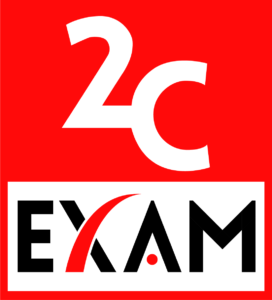Which licensing exam should a bank staff patake in? Is it regulated by the SFC or HKMA?
What does it mean by the commonly mentioned term “SFC license”?
The Securities and Futures Commission, also known as SFC, is the statutory regulator of the securities industry in Hong Kong.The Securities and Futures Commission was established under the Securities and Futures Ordinance, and its responsibility is to ensure that the securities industry is fair and orderly. The SFC is independent of the Hong Kong government, but is given the power to make subsidiary legislation, investigate the affairs of the securities industry, grant and revoke licenses for regulated activities in securities and futures industry.If a company (not a bank or an authorized financial institution company) wants to be qualified for a regulated activity, it needs to be licensed by the SFC for the regulated activity under the legal requirements. An organisation will become a ” Licensed Corporation ” once a license is obtained. Employees who conduct regulated activities under the organization’s name will be referred to as licensees after being licensed. Complaints about a licensed corporation or a licensee will be handled by the SFC. If you want to obtain basic information regarding a licensed person or a licensed corporation, kindly use the public search function by entering one’s license number, license type or company, etc. To conduct the public search, kindly follow the steps below:
- Click on the link: https://apps.sfc.hk/publicregWeb/searchByName?locale=en
- Enter the licensee’s full name in Chinese or English, or their CE code.
- Click search
What is a HKMA license?
The full name of HKMA is the Hong Kong Monetary Authority, which is the statutory regulatory authority for Hong Kong’s banking industry. The HKMA is an independent statutory body authorized by the Financial Secretary to manage Hong Kong’s foreign exchange reserves and maintain the linked exchange rate system. It is also responsible for the regulation and management of authorized banks or authorized financial institutions (i.e. licensed banks, restricted license banks and deposit-taking companies). In Hong Kong, the business of banks is diversified, and some banks even participate in the securities business. But the HKMA is not the main regulator of the securities industry. The SFC is the expert in this area. However, the SFC does not want to have more workload, and does not want to issue licenses directly to banks to avoid complicating the regulatory framework. Banks that need to conduct regulated securities business should be jointly supervised by the SFC and HKMA. The HKMA will provide direct front-line supervision, and the SFC will only cooperate passively.
Therefore, banks that conduct securities business will only be registered as “registered institutions” with the Securities and Futures Commission, not “licensed corporations” directly supervised by the Securities and Futures Commission. Therefore, employees who conduct regulated activities in “registered institutions” are also registered with the SFC and are called registrants, not licensees. It is also worth mentioning that although these registrants are registered with the Securities and futures Commission in name, in fact all forms submissions and communication are carried out with the HKMA. HKMA also handles complaints regarding registered institutions or registrants.
Reference Information:
If you want to search for basic information about a registrant, please kindly search via HKMA’s public search engine, by entering the licensee’s license number, license type, company etc. Please follow the steps below to conduct the public search:
- Click the link: https://apps.hkma.gov.hk/eng/index.php?c=search&m=search_by_name
- Read and agree to the statement to continue
- Enter the person’s Chinese or English name (Please be aware if there is inappropriate spacing, the search results might not be accurate) or registration number, for example Chan Tai Man,. the search results will not be displayed correctly when you enter ” Chan Tai Man” or “Chan Tai Man “,.
- Enter confirmation code
- Click Search
Which license should a bank employee take?
Bank employees need to first consult the company’s human resources or compliance department and confirm which company/companies they will represent. Because some banks do not directly conduct securities business with the bank itself. They may open a subsidiary company to separate different businesses. Most retail bank employees only represent the bank itself, therefore only HKMA registration is required, and no license from the SFC. However, a private bank employee may have the chance to represent a bank and a license corperation simultaneously, this will occur especially when dealing with derivative transactions. Under this circumstance, the same person will be a licensee and registrant at the same time.
Besides, the licensee of the SFC has each assigned a unique license number. The first 3 digits of the license number are composed of English letters, and the last 3 digits are composed of numbers. A total of 6 digits will be formed which is subsequently named as the CE number. The registrant number of the HKMA is composed of 2 English letters and 4 numbers. A person can have both the SFC CE number and the HKMA registrant number, which are two different sets of numbers.
Can a licensee buy stocks for themselves?
Employees and companies, whether licensed or registered, need to abide by the code of conduct, please refer to: https://www.sfc.hk/-/media/EN/assets/components/codes/files-current/web/codes/code-of-conduct-for-persons-licensed-by-or-registered-with-the-securities-and-futures-commission/Code_of_conduct-Dec-2020_Eng.pdf Therefore, regardless of whether you are licensed or not, as long as you work in a licensed or registered employer/organization, according to the Code of Conduct, all your securities and futures trading accounts and trading transactions must be declared to the company and must comply with company employee transactions policies. However, different companies have different regulations. If you want to learn more about the reporting standards, procedures, etc., you should check with the compliance officer of the company where you work.
What are the different types of Regulated Activities/SFC licenses?
- Type 1 – Dealing in securities
- Type 2 – Dealing in futures contracts
- Type 3 – Leveraged foreign exchange trading
- Type 4 – Advising on securities
- Type 5 – Advising on future contracts
- Type 6 – Advising on corporate finance
- Type 7 – Providing automated trading services
- Type 8 – Securities margin financing
- Type 9 – Asset management
- Type 10 – Providing credit rating services
In addition to regulated activities number, licenses can also be categorised by 3 issuance form:
Full license, provisional license and temporary license
A full license is the most common type of license. It is a license obtained by persons engaged in the securities industry in Hong Kong after passing the examination and meeting the requirements of the Competency Guidelines. If the license is renewed once a year, there will be no expiry date. For some people who have previous experience in the securities industry overseas (such as China, Taiwan, the United States, the United Kingdom, etc.), or some whose company wants them to work as soon as possible, they will apply for a license/registration before taking the exam. After the application is being reviewed by the Securities and Futures Commission, and if theSFC believes that the applicant is capable of obtaining a passing result in the subsequent examination afterwards, the applicant can apply for a full license with the condition that they will fulfil the examination requirement later on. Applicants need to take the HKSI LE exam of the relevant subjects within 6 months after the successful licensing/registration, and submit the result slip after obtaining the passing results to offset against the license condition. The conditions of the licensee’s can be found on the public record of the SFC website.
A provisional license is a license that is issued by the SFC, prior to the completion of the entire long licensing processes for emergency use. The validity period for provisional license is due before the SFC makes a final decision on a candidate’s formal license application. If the SFC approves or rejects its formal license application, the temporary license will be revoked.
A temporary license can be obtained when companies and individuals that mainly conduct business overseas need to go to Hong Kong for a short period of time to carry out Type 1, 2, 4, 5, and 6 regulated activities. Each application to the Securities and Futures Commission for a short-term license can be valid for a period not exceeding 3 months. The same person shall not hold a short-term license for more than 6 months in a 24-month period. Types 3, 7, 8, and 9 regulated activities are businesses that require a longer period of time to operate and are more complex. Therefore, short-term licenses are not applicable to these types of activities.
Are there different job titles for registered institutions and licensed corporations?
As mentioned earlier, licensed corporations are referring to organisations that carry out regulated activities such as securities firms, asset management companies, etc. which are non-banks and non-authorized financial institutions; while registered institutions are banks that conduct securities business. In a licensed corporation, the person who monitors the entire operation of the company’s regulated activities is called a responsible officer. Is it the same in a registered institution? In fact, it is not. The equivalent position within a registered institution is called an Executive Officer. Both experiences are interchangeable if one wants to apply for the position mentioned.
Where can I find the SFC licensee registry?
Where can I find the HKMA’s registrants registry?
How to apply for a license after the HKSI exam?
What does it mean to hear people say that you want to partake in the 178 license exam? In fact, the saying of 178 license is a common misnomer. 178 does not refer to a license, but a combination of exam papers that need to be taken, that is, a combination of three exam papers, paper 1, paper 7, and paper 8. In Hong Kong, collecting commissions from customers for buying and selling securities and other securities-related businesses on behalf of the customers are regulated activities. A license must be obtained before these regulated activities can be carried out. One of the competency requirements for applying for a license to become a representative and/or responsible officer is to pass the designated test paper combination of HKSI (Hong Kong Securities and Investment Institute) LE (Licensing Examination). Therefore, those who wish to engage in regulated activities in the securities industry need to register for the LE exam at HKSI. However, passing the exam itself does not mean successfully obtaining a license! You must meet other licensing requirements, such as age, education, work experience, criminal record, and financial status, before you can apply for a license. After completing the designated exam/examination combination, candidates can find a company/bank with a securities license to hire them, and then submit relevant documents to the company, such as academic certificates, exam transcripts, etc., and the company will handle the license application/registration on their behalf. Since the personal securities license is attached to the company’s license, once the candidate decides to leave the company, the licensee’s license will be temporarily revoked. With that said, the application for the personal license must be applied by the company and cannot be applied by the individual.
Where can I find a job as a licensee of the SFC?
You can find jobs through the most popular job boards in Hong Kong, such as JOBSDB and LINKEDIN. You can also ask for introductions from acquaintances, or seek help from employment agencies active in the financial sector for recruitment, such as Paradox Management Limited www.paradox-management.com
Where can I check the educational qualification requirements for securities licenses?
Educational qualifications are set by the SFC. You may reference the Guidelines on Competence:
How can we help you in exam preparation
2CExam mainly sells products related to HKSI, IIQE, EAQE and SQE related exams, we provide both EAQE and SQE exam mock questions in Chinese, furthermore, we have one-to-one private tutoring services. We strongly hope to help our clients to succeed, therefore, we also produce free YouTube videos in Chinese for your reference. 2CExam has many years of experience in the securities, insurance, and real estate industries. If students need help, please visit www.2cexam.com or contact us at:
Tel: +852 21109644
Email: [email protected]
WeChat: hk2cexam
WhatsApp: +852 93472064
Please support us by leaving comments and likes if you think this article helps you!
You can scan or click on the QR codes to visit our social media.
Latest Article
Categories
過往文章
Contact US
-
Phone:
+852 2110 9644
-
Email:
-
WhatsApp
+852 9347 2064
-
WeChat
hk2cexam
Interesting Articles
Is the IIQE paper based exam or computer based exam easier? Which exam is better to partake in?
Many people are curious about the differences between the IIQE’s computer-based exam and the paper-based exam. As per the two exams’ content, they are pretty much identical. The two exams use the same Study Guide, the exam questions are drawn in the same question bank. Some people say that they have taken a…
Is the HKSI paper-based exam or the computer-based exam easier? Which is better to partake in?
Many people are curious about the differences between the HKSI LE’s computer-based exam and the paper-based exam. As per the two exams’ content, they are pretty much identical. The two exams use the same Study Guide, the exam questions are drawn in the same question bank. Some people say that they have taken…
What are the differences between a computer-based and paper-based exam for the Estate Agents / Salespersons Qualifying Examinations?
There are differences between the computer-based exam and the paper-based exam? Some people say that the computer-based exam / paper-based exam will be easier? Many people are curious about the differences between the EAQE/SQE’s computer- based exam and the paper- based exam. As per the two exams’ content, they are pretty much…
What is the difference between the computer-based exam and the paper-based exam of the Insurance Intermediaries Qualifying Examination
Many people are curious about the difference between the IIQE’s computer-based exam and the paper-based exam. First of all, IIQE does not hold many paper-based examinations. In many cases, it will only hold paper-based examinations for Paper 1. If you have special needs, such as not being proficient with computers, or having a vision…
What are the differences between the computer-based exam and the paper-based exam of the Licensing Examination for Securities and Futures Intermediaries (LE)?
There are differences between the computer-based exam and the paper-based exam? Some people say that the computer-based exam / paper-based exam will be easier? Many people are curious about the differences between the HKSI LE’s computer-based exam and the paper-based exam. First of all, HKSI does not hold many paper-based examinations. In many…
Which Licensing Examination for Securities and Futures Intermediaries exam paper should I partake in?
If you want to work in the front line of the securities industry, you have a good chance of needing to take The Licensing Examination for Securities and Futures Intermediaries. As for what test papers you need to take, first of all, you need to know that the number of the exam paper has…
If I have an overseas professional qualification, can I obtain a SFC securities license simply by recognising my prior qualification
Some students have worked in the securities finance industry outside of Hong Kong, and now they also need to obtain a securities business license in Hong Kong. Can work experience in the securities industry abroad help you waive the exam and allows a candidate to directly apply for the securities license from the Securities…
In order to obtain exemption from the HKSI LE exam or SFC’s academic requirement, how is relevant industry experience considered?
After reading the “Competency Guidelines” issued by the Securities Regulatory Commission, some students may have a big question mark on “Relevant Industry Experience”, “have X years of experience in the past X years”, and then ask us what kind of experience are counted as industry experience so they can be exempted from the Licensing Examination…
Which insurance intermediary qualifying examination paper should I take?
If you want to work in the front line of the insurance industry, you have a good chance of needing to take the Insurance Intermediaries Qualifying Examination (IIQE). As for what exam papers you need to take, first you can check whether you meet certain conditions to be exempted from specific exam paper combinations…
The difference between IA Responsible Officer(RO) and technical representative (TR)
Regulatory Organisation Before explaining the difference between Responsible Officer and Technical Representative, you must first know that there is only one regulatory agency that regulates companies engaging in insurance business: the Insurance Authority (IA). All the powers concerning licensing matters, supervision tasks, sanctions and investigations of intermediaries of insurance intermediaries, insurance companies and insurance…







